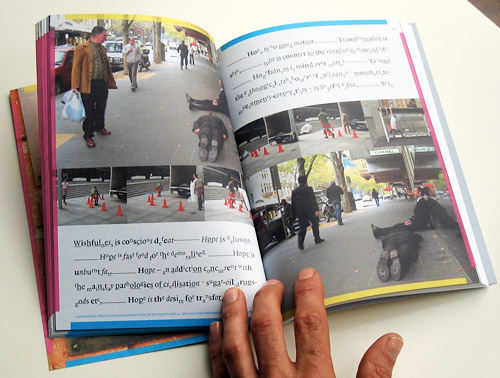It's somewhere between 12am and sunrise and I'm listening to the drunks in the tent next door to ours. One guy is yelling, "me foreskin's wearing out" over and over until he invents another, "Julie, give me your finger, he's passed out, stick it up his arsehole". I consider getting up and asking him to lower the volume. Instead I lay there a little longer and eventually we all pass out.
Today I've been thinking about the drunk guy's graffic language, its volume and its incursion upon a sleeping campsite. And I've been thinking about my initial judgement (and avoidance) of these night raiders, or air graffitists, in light of my recent championing of both joking relations and relations of common substance.
A few things come to mind. Firstly, it is clear that my immediate judgement stemmed from fear. As I lay in my tent I perceived a level of drunkeness in the loud guy's voice which I knew could quickly transmogrify into irritation, possibly even some level of violence. It seems to me that when a man is joking about sticking his finger up a mate's arse, he's either hanging for a fuck or looking for a fight. With extreme drunkenness either will suffice (in order to put the baby to sleep). The second judgement was based on community insensitivity. The four drunks had come back from a binge and loudly announced it to the sleeping world. The intervention was simply selfish in the quiet of the night.
Good manners are synomonous with the bourgeiose. In his book Possibilities, David Graeber tracks the course of manners through the Middle Ages and their correlation with relations of avoidance and property; most fiercly indoctrinated by the English puritans and the Scotsman Calvin.
...avoidance became generalized: in the sense that principals of behaviour which once applied mainly to relations of formal deference gradually came to set the terms for all social relations, until they became so thoroughly internalized they ended up transforming people's most basic relations with the world around them. David Graeber, p31.
My primary and secondary school education was Calvanist in flavour, or what I came to brand: Christian-capitalist. So my judgement, at an entrenched level, stems from the prejudices of prudishness and wealth generation (at the expense of the landbase) that Christian-based private schools promote.
In contrast my adult, self-formed self is more of the eco-anarchic-atheist, the frameworks within which I practice a critical life heavily reliant upon chance encounters, an attempt at permanent culture (permaculture) and a long standing admiration for common substance and indigenous intelligence.
My two selves – a bourgeiose-Calvanist and a utopian embracing hopelessness – make up my whole, albeit unpopular, self. In this world it may seem far more simple to take a path of least resistance – join a proper club – and live supposedly free from judgement and critical thought, but I figure that eventually stupidity's dangerous side catches up with people, as it does with planets.

No comments:
Post a Comment